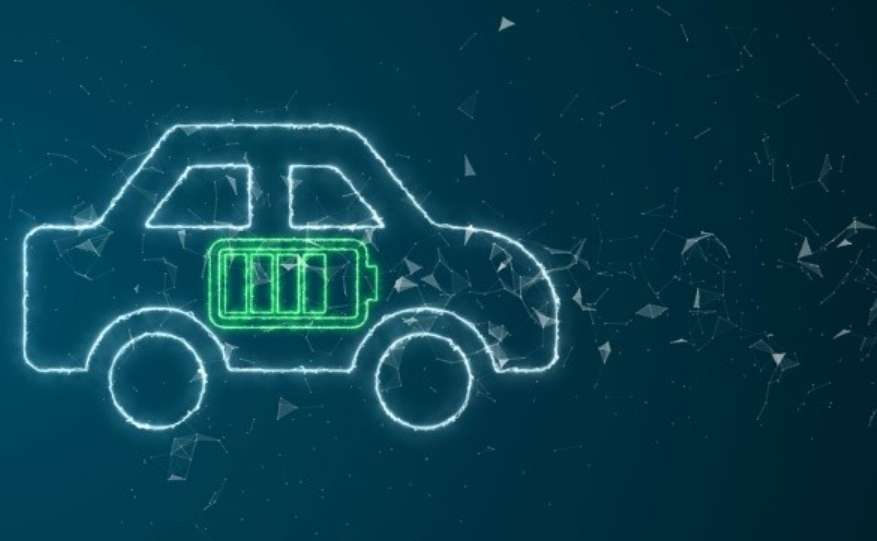Global Innovation Fuels "Wen Jie" in Auto Industry
Advertisements
The journey of automaker Seres serves as a compelling narrative that encapsulates the evolution of the Chinese automotive landscape. Founded by Zhang Xinghai, the company initially specialized in manufacturing springs, but through strategic pivots, it has risen to prominence as one of China’s three leading microcar manufacturers. Today, Seres stands as a testament to the innovative spirit of the electric vehicle (EV) era, showcasing a successful transition from traditional manufacturing to modern digital and automated processes. This metamorphosis signifies broader trends in the industry that many companies are currently navigating.
Amid these developments, the 31st Annual Conference of the Society of Automotive Engineers of China provided a platform for Zhang Xinghai to reflect on the milestones achieved over Seres' 38 years in existence, including 20 years in complete vehicle manufacturing. His insights into entrepreneurship reveal a philosophy steeped in perseverance and innovation. Zhang articulated that "entrepreneurial spirit is about persistent effort and relentless innovation," a mantra that appears pivotal as the automotive sector grapples with intense competition and rapid technological advancements.
The competitive landscape of the new energy vehicle market is fierce, with companies continuously at risk of obsolescence. Zhang's proposed strategy for maintaining a competitive edge centers on a steadfast commitment to electrification and the integration of cross-industry collaborations. He stated, “The government has clearly indicated the direction for the development of New Energy Vehicles (NEVs). The automotive industry is vast; by merging, diversifying, and forming partnerships, we can transcend the boundaries of the automotive sector, tapping into our strengths to drive industry progress.”

This forward-thinking strategy has clearly paid dividends, particularly with the launch of the Wenjie series under the Seres umbrella. The Wenjie line's success exemplifies not only effective market positioning but also a profound understanding of emerging consumer demands for hybrid solutions. In a remarkable turn of events, Seres reported revenues exceeding 100 billion yuan for the first three quarters of this year, underscoring its ability to achieve scale in a fiercely competitive market. Financial records indicated an astonishing year-on-year revenue increase of 539.24% and a net profit growth of 276.02%. Such results are not only indicative of Seres' operational success but also reflect a broader transformation within the NEV sector.
One pivotal moment in Seres’ trajectory came in 2021 with the collaboration between Seres and tech giant Huawei, a partnership considered audacious given the uncertainties surrounding the NEV market at the time. This crossover has imposed a distinctive blueprint for modern automotive businesses, with Zhang emphasizing the importance of cross-sector collaboration. While traditional partnerships within the industry may yield moderate benefits, alliances beyond the automotive sector can lead to exponential growth, providing insights and technologies that can redefine consumer engagement and vehicle capabilities.
To truly appreciate Zhang's strategic choices, it is helpful to dissect his previous entrepreneurial ventures. Prior to establishing Seres, he founded a spring manufacturing company in the 1980s, capitalizing on gaps in the domestic appliance market during China’s post-reform boom. This initial foray into manufacturing set the foundation for his subsequent endeavors. His second entrepreneurial venture, initiated amidst the saturation of the motorcycle industry, resulted in the co-founding of DFSK, a company that became one of China’s three significant microcar producers.
When the world of fuel combustion vehicles became increasingly disrupted around 2015, inspired by the introduction of Tesla, Zhang pivoted yet again, leading to the establishment of Seres. This strategic shift aligned with the industry's broader movement towards electrification, launching its innovative platforms in Silicon Valley, where a culture of technological ingenuity thrives. Zhang's philosophy points out that in the evolving automotive landscape, innovation and technological superiority will be the ultimate competitive differentiators.
Recent successes for the Wenjie line—including models M5, M7, and M9—are testaments to Zhang's vision for combining robust automotive expertise with high-tech solutions. Statistics reveal that since its launch, the Wenjie M9 achieved impressive sales, topping 170,000 units and maintaining its status as a leading luxury model within the segment. The Wenjie newer models have seen cumulative deliveries exceed 170,000 units, indicating an enthusiastic market response to these products.
As the landscape moves toward greater digital integration and technological sophistication, the emphasis on smart, connected vehicles has emerged. Information software not only enriches the consumer driving experience but can also facilitate advanced data analytics, thereby optimizing both user safety and vehicle performance. Zhang envisages the NEV sector increasingly driven by technological advancements where smart-electric fusion will redefine modern luxury, ultimately creating innovative experiences that transcend traditional automotive offerings.
At the recent Guangzhou Auto Show, the unveiling of Seres’ next-generation super-range extender system reinforced its commitment to technological innovation rooted in efficiency, silence, and high-performance metrics. With the adoption of a more proactive energy management system, the company reported significant reductions in fuel consumption and noise levels, consequently underscoring its competitive edge in manufacturing technology and engineering.
In terms of manufacturing capabilities, Seres has not shied away from investment. The so-called "automotive brain" ecosystem denotes an ambitious endeavor to implement comprehensive automation within its manufacturing processes, assuring not only efficiency but a commitment to quality revolved around complete traceability of product delivery.
As Seres looks toward the future, Zhang's directive is clear: innovation must align with regional needs and innovations to harness unprecedented opportunities presented by high-level governmental policies driving the automotive sector. Zhang is resolutely steering Seres along the paths of high-end luxury, intelligent technology integration, and sustainability. By establishing core technological breakthroughs in the realm of electric vehicles, he aims to contribute towards realizing China's goal of becoming a global powerhouse in the automotive world.
post your comment